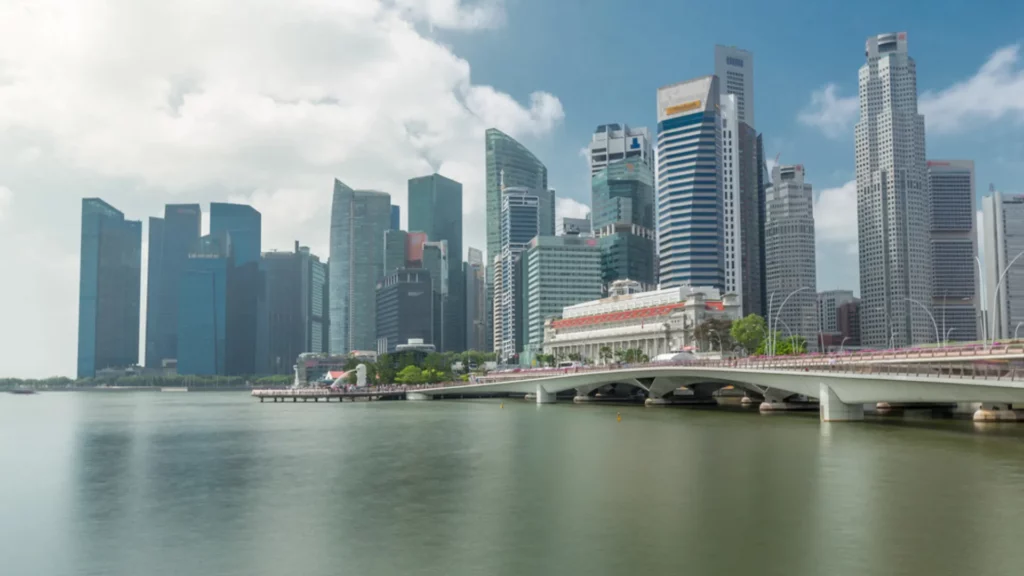Despite being the minority stakeholder now, IOIPG will gain complete ownership of Singapore’s South Beach complex, valued at $2.75 billion, following the completion of the deal.
Plagued with debt and declining investor confidence after a family feud that nearly devastated the company, Singapore-based company City Developers (CDL) has decided to sell its majority stake in one of the country’s South Beach complex. CDL and Malaysian developer IOI Properties Group (IOIPG) jointly announced on Wednesday that CDL would sell 50.1% of its stake to IOI for $834.2 million.
Despite being the minority stakeholder now, IOIPG will gain complete ownership of the complex, valued at $2.75 billion, following the completion of the deal. Controlled by Singapore‘s wealthiest clan Kwek family, CDL called for the suspension of trading at the Singapore Stock Exchange once the decision was made public. The company’s shares increased 1.6%, to $4.95 before the trading halt. Similarly, IOIPG also halted trading, with share prices falling 2.11%.
Following a family feud in its real estate company, CDL has sought to reduce debt, prompting its decision to sell off its assets. Despite a target of S$1 billion in asset disposals last year, CDL only managed about S$600 million. The company estimates that this latest deal will fetch a gain on disposal of about $465 million by the end of this financial year.
CDL stated that the sale price for the South Beach deal was determined based on 50.1% of the consolidated net assets of Scottsdale Properties. Scottsdale Properties owns South Beach Consortium, which in turn owns South Beach. The price also factors in an agreed property valuation of $2.75 billion and Scottsdale’s liabilities amounting to $1.16 billion.
The Singaporean company confirmed that this sale would allow CDL to reduce bank borrowings and improve the net gearing ratio. The firm also hopes to venture into new acquisitions, invest in upcoming development projects and optimise capital management. The CDL board members expressed that this sale would yield positive results for the company and is in line with the overarching strategy to recycle capital.
Sherman Kwek, CDL Chief Executive, said that acquiring the South Beach property was no easy feat in 2007, and it has since transformed into a high-performing, stabilised asset, now providing strong occupancy and stable income. Therefore, Kwek believes that now is the right time to capitalise on its value.
The company said that the complex’s office and retail component occupancy is 92.4% and 92.5%, respectively. The Straits Times reported that last year, Meta Platforms gave up its 7-floor office space, bringing down the occupancy from 94.4% in 2024 to 92.4% this year.
In 2007, CDL acquired the South Beach complex for $1.7 billion in a government land sale along with two foreign partners, a unit of state-owned Dubai World and El-Ad Group. However, multiple delays in construction due to the 2008 global financial crisis caused the two other partners to pull out of the deal and in 2011, IOIPG was roped in as a minority stakeholder. This joint venture to develop South Beach now boasts a 34-storey office tower, a 45-storey JW Marriott Hotel and luxury retail spaces.
IOIPG group chief executive Lee Yeow Seng described this 100% takeover as a ‘strategic expansion for the Malaysian firm in Singapore. With several other high-end residential projects under its belt, IOIPG has now expanded its portfolio with the South Beach deal and the recently launched IOI Central Boulevard Towers in Singapore’s central business district. This deal would make IOIPG one of the major landlords of premium office space and a prominent player in the global real estate industry.
Despite these public setbacks, CDL remains a big name in Singapore, and the company announced in May that its sales revenue for its property development segment in the first quarter of this financial year was $1.9 billion. This 85% increase in volume was attributed to the launch of its joint venture condominium project.
